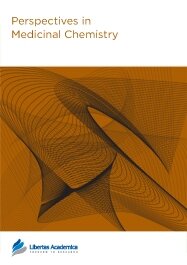

Publication Date: 23 Feb 2011
Type: Perspective
Journal: Perspectives in Medicinal Chemistry
Citation: Perspectives in Medicinal Chemistry 2011:5 11-17
doi: 10.4137/PMC.S6509

Alzheimer’s disease is known to be the most common form of dementia in the elderly. It is clinically characterized by impairment of cognitive functions, as well as changes in personality, behavioral disturbances and an impaired ability to perform activities of daily living. To date, there are no effective ways to cure or reverse the disease. Genetic studies of early-onset familial Alzheimer’s disease cases revealed causative mutations in the genes encoding β-amyloid precursor protein and the γ-secretase-complex components presenilin-1 and presenilin-2, supporting an important role of β-amyloid in the pathogenesis of Alzheimer’s disease. Compromised function of the choroid plexus and defective cerebrospinal fluid production and turnover, with diminished clearance of β-amyloid, may play an important role in late-onset forms of Alzheimer’s disease. If reduced cerebrospinal fluid turnover is a risk factor for Alzheimer’s disease, then therapeutic strategies to improve cerebrospinal fluid flow are reasonable. However, the role of deficient cerebrospinal fluid dynamics in Alzheimer’s disease and the relevance of choroidal proteins as potential therapeutic targets to enhance cerebrospinal fluid turnover have received relatively little research attention. In this paper, we discuss several choroidal proteins, such as Na+-K+ ATPase, carbonic anhydrase, and aquaporin 1, that may be targets for pharmacological up-regulation of cerebrospinal fluid formation. The search for potentially beneficial drugs useful to ameliorate Alzheimer’s disease by facilitating cerebrospinal fluid production and turnover may be an important area for future research. However, the ultimate utility of such modulators in the management of Alzheimer’s disease remains to be determined. Here, we hypothesize that caffeine, the most commonly used psychoactive drug in the world, may be an attractive therapeutic candidate for treatment of Alzheimer’s disease since long-term caffeine consumption may augment cerebrospinal fluid production. Other potential mechanisms of cognitive protection by caffeine have been suggested by recent studies.
PDF (507.28 KB PDF FORMAT)
RIS citation (ENDNOTE, REFERENCE MANAGER, PROCITE, REFWORKS)
BibTex citation (BIBDESK, LATEX)
XML
PMC HTML

My experience publishing in Perspectives in Medicinal Chemistry was very positive. The submission process was very quick and easy. I was extremely impressed by the efficiency of the editorial staff and reviewers.
Facebook Google+ Twitter
Pinterest Tumblr YouTube